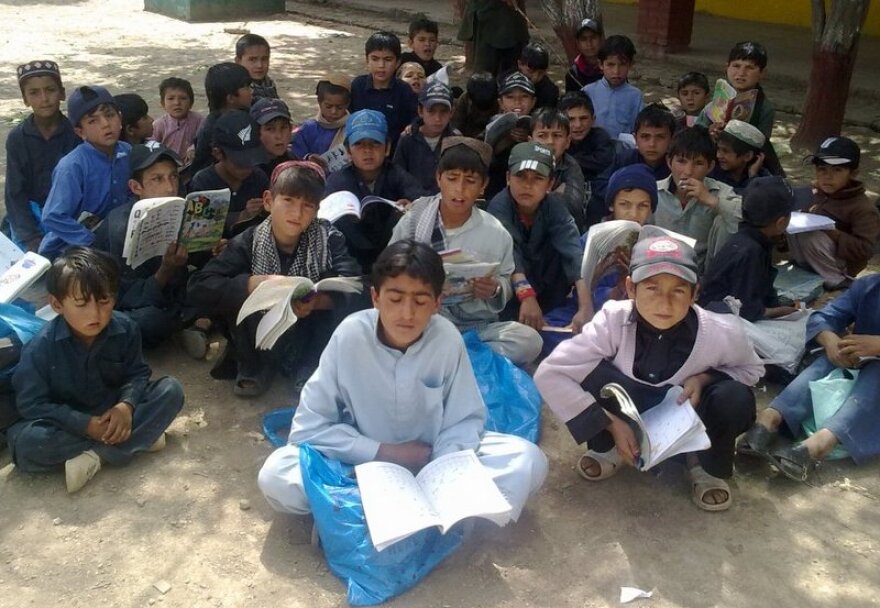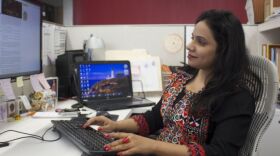Tayyeb Afridi is a journalist from theFederally Administered Tribal Areaof Pakistan, a region that borders Afghanistan. He visited KUT in May 2011 on a US Pakistan Journalism Exchange through the International Center for Journalists. You can read his blog at tayyebafridi.blogspot.com.
A local radio station in Pakistan’s unsettled tribal area shows how important media can be in spreading awareness of the importance of education. About 180 new students turned up at one government school in the town of Razmak in North Waziristan after the local radio station broadcast announcements telling parents that education in government schools was free. Most local parents thought they would have to pay for schooling.
Razmak Radio was established in 2006 to bridge the gap between people and their government. It has started a public service announcement (PSA) campaign to educate people on development issues. It designed PSAs in March and broadcast them throughout the month to motivate local people to enroll their children in school.
The town of Razmak is relatively safe, unlike cities with other schools that are blown up regularly. Local media sources say that more than 300 schools have been destroyed or damaged by militants in the tribal areas in the past few years.
While North Waziristan is believed to be one of the main bases for militants causing instability in both Pakistan and neighboring Afghanistan, the government school in Razmak is more protected, because the town has one of the main government military bases in Waziristan.
Bahadur Nawaz, principal of Government High School Razmak, says that his school used to have only 30 students. There is little tradition of formal education in the fiercely conservative tribal areas, and few parents send their children to school. When Razmak Radio broadcasting the PSA, Nawaz says he started receiving good responses from people of the locality. It was conveyed to listeners that their children will be taught freely and they would be provided free books. The PSA resulted in a large number of parents bringing their children in for admission.
“In less than a month, the number of students at school have raised to 210,” Nawaz says. Most of the students he admitted in were new, brought in by parents who were poor and couldn’t admission fees. That includes people who are internally displaced from South Waziristan and living in camps at Razmak and Shawal.
Bakhtawar Jan, station manager at Razmak Radio, says the PSA has been repeatedly broadcast over a month. It led to a tremendous response from listeners and many calls to the station, most asking for further information about free education.
Jan added that many of those that called in were first suspicious about the authenticity of this announcement. But when they realized that it was true, they began asking about the qualifications of the teachers. “You can see the curiosity and interest of the public from this,” he says. Jan says he never imagined such a response to the PSA, which brought 180 students to a deserted school.
Gul Khatem, the father of eight-year-old student Junaid, said that he heard the PSA on the radio and took his child straight to school for admission. “It was exactly free of cost, as was said by radio,” he says. His son was in the middle of classes at a private school when he pulled him out, due to the cost, Khatem adds.
Abdul Haseeb, a resident of Shankie village in Razmak, adds that his two sons were studying fifth grade in a private school when he heard the PSA; he couldn’t resist bringing in his children to this school for free education.
Principal Nawaz says that people are still coming regularly for admission; the day we spoke, he admitted more eight more students.




